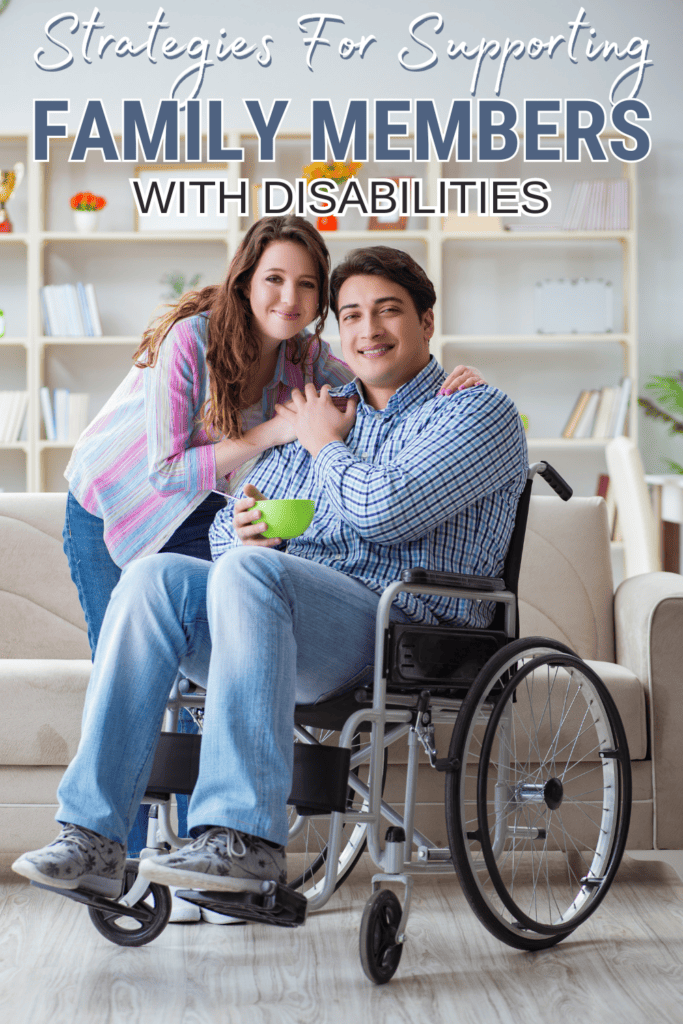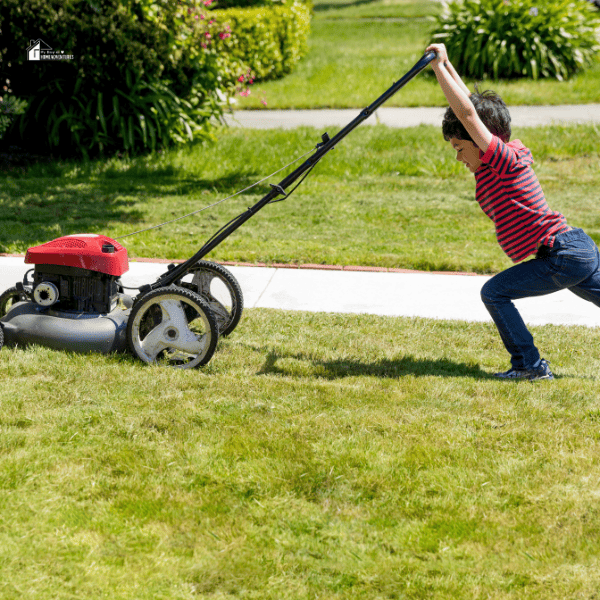Strategies for Supporting Family Members with Disabilities
This post may contain affiliate links which might earn us money. Please read my Disclosure and Privacy policies hereLearn about supporting family members with disabilities. Let's begin! One in six people across the globe experiences significant disability. Whether you are living with a person who is disabled or you have a loved one with one or more disabilities, you may wonder what you can do to support them.
The good news is that there are so many roles you can play—from friend to driver, advisor to researcher, you can help out with a myriad of tasks.
Your choice ultimately depends on two crucial factors: the tasks your loved one most needs help with, and the ones you are most motivated to carry out.

Ensuring Your Loved One Knows Their Rights and Entitlements
If your loved one has just become disabled, then it is important to help them work out their rights and entitlements under disability law. In the US, disabled people who meet eligibility requirements can apply for Social Security Disability Insurance (SSDI).
Recipients of SSDI must not be able to work because of a medical condition that is expected to last for at least one year, be younger than their full retirement age, and meet the SSA’s definition of a disability.
The average SSDI benefit amounts to around $1,358 per month. The exact amount your loved one is entitled to depend on their work experience, but it is possible to earn up to around $3,300 monthly.
If your loved one is over 65, they should apply for Supplemental Security Income (SSI), available to those who cannot work or have little or no work history.
Talk To Your Loved One About Training and Education
As helpful as disabled benefits are, they may not be sufficient for your loved one to enjoy the quality of life they would like. Across all age groups, reports the Bureau of Labor Statistics, disabled people are much less likely to be employed.
To be precise, their unemployment rate is about twice as high as the rate for their non-disabled counterparts. People with a disability are also less likely to have achieved a Bachelor’s degree or higher education qualifications.
Persons with disabilities are additionally less likely to work in management, professional, and related professions and more likely to work in service occupations, production, transportation, and material moving.
However, some innovative tools and resources can significantly enhance the quality of life and employment opportunities for people with disabilities. One such example is a real time captioning app, which can be a game-changer, especially for those with hearing impairments. This technology allows for instant transcription of speech into text, enabling better communication in various settings. It's not just beneficial in personal interactions, but also in educational and professional environments.
Helping Your Loved Ones Make the Transition to Higher Education
Because higher education is lined to a better employment rate, if your loved one has a passion for a particular field, encouraging them to study it can help them dedicate their lives to doing what they love.
Currently, there are over 2.4 million postsecondary students with disabilities who attend college. Because choosing the right college or university is such a time- and energy-consuming process, you can help your loved one reduce the stress involved by researching colleges with the best facilities and services for students with disabilities.
You can also shorten the decision process by visiting prospective school campuses with your loved one, visiting disability service offices on campus, checking different websites to check out pertinent diversity and inclusion missions, and more.
You can then synthesize all the valuable information you have compiled so your loved one can make an easier, smarter, more targeted choice.
The Power of Advocacy
If your loved one with a disability is a child or adolescent, teach them how important it is to fight for their rights and advocate for other people with disabilities.
Share the stories of people like Diego Juelo, a Tedx speaker and Chemical Engineer from Ecuador who graduated with Honors at the top of his class and received several prizes for his scientific projects.
Diego has founded a global network for disabled STEM students called ScienDis. Its aim is to increase the percentage of disabled people working in scientific and technological fields, and to increase inclusion in research and academia.
His story is an excellent example of the power of advocating for others and inspiring those who need a boost in confidence.
What’s New in Your Loved One’s World?
Encouraging your loved one to keep abreast of new developments and treatments is one of the most effective ways you can help them. There are a host of new treatments that are providing results that were unheard of just a decade ago.
For instance, scientists now have a far deeper understanding of neurobiology than in the past and have more advanced technology to enable them to achieve their goals.
For instance, innovative physiologic therapies such as deep brain stimulation and transcranial magnetic stimulation enable scientists to enhance cognitive functioning.
Amazing Robotics
In other specializations, cutting-edge robotic exoskeletons (wearable structures) are supporting and assisting movement, greatly augmenting the human body’s capabilities. Thanks to biometric sensors that detect the wearer’s nerve signals, these metallic structures are proving to be a vital aid for people with disabilities.
Their advantage include new employment opportunities and faster rehabilitation for people who have experienced and accident and who need to walk or function as they did in the past.
Some assistive frames are specially designed for people who have had a stroke, or those who need help to strengthen their muscles.
Children’s exoskeletons are currently used for children aged four to ten with conditions such as spinal cord injuries, cerebral palsy, muscle atrophy, and other neuromuscular diseases that produce progressive weakness.
The Power of Social Interaction
Research has consistently shown that social interaction has positive effects on mental health and well-being. Meanwhile, a lack of social support is linked to depression, isolation, and social exclusion.
Adults with physical disabilities may have fewer opportunities to be with others in social settings. Therefore, it is essential to help integrate them into vibrant, close networks that can prove to be an excellent source of support, friendship, and even entertainment.
Host social occasions and don’t always invite the same crowd to them. This way, your loved one will have the opportunity to come across more people they can click with. Encourage your loved one to sign up for classes centered on subjects they are passionate about.
This way, it will be easier to build ties with people with whom they have things in common. Finally, give your loved one your own quality time. Social interaction doesn’t have to involve groups or large gatherings.
Sometimes, all your loved one needs is a little time with you. A one-on-one chat can do wonders for both parties concerned, as it provides a chance for sharing what’s on your mind and talking about different points of view and upcoming goals.

Being the Person Your Loved One Can Call
Speaking frequently to your loved one is an important way in which to know exactly how they want you to help them. Let them know they can count on you for the tasks that fit your work schedule.
They may ask you for help with a task such as grocery shopping and on the days you can’t comply, you can always help them order groceries for home delivery. They should know that you will be there for smaller and larger requests alike.
Communication should always be open and honest. If you cannot comply because of work or other reasons, let them know and try to find other ways of making it happen.
Supporting friends and family members with disabilities involves assisting them in the way they want and need.
Whether helping them navigate their rights and entitlements or simply being someone they can rely on, your support can make a world of difference. By offering your time, understanding, and assistance, you can empower them to live their lives to the fullest.
Together, you can overcome challenges, celebrate achievements, and create a future where inclusivity and support are the norm.
Remember, the journey may have its ups and downs, but with your unwavering support, the possibilities are endless.





